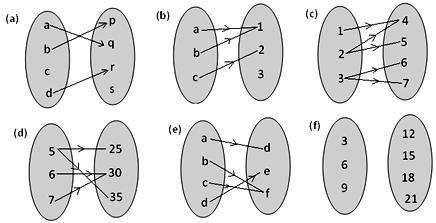@toastal
I work in Boulder building a media application with Electron, React, Redux, Babel, & now Ramda.
My degree is in art – so obviously I’m someone you can trust.
Nothing special here: https://toast.al/
const obj =
{ foo : "bar"
, baz : true
, qux : 3.1415
}
objToQueryStr(obj)
//=> "foo=bar&baz=true&qux=3.1415"function objToQueryStr(obj) {
var param = "";
_.forEach(obj, function(value, key) {
param += key + "=" + value + "&";
});
return param.slice(0, -1);
}And why are we mutating param?
const objToQueryStr = (obj) =>
_.join(_.map(_.toPairs(obj), (kvs) => _.join(kvs, "=")), "=")const objToQueryStr = (obj) =>
_.chain(obj)
.toPairs()
.map((kvs) => kvs.join("="))
.join("&")
.value()const objToQueryStr = (obj) => {
killAllKittens() // :(
return _.chain(obj)
.pairs()
.map((kvs) => {
call("Mom") // :(
return kvs.join("=")
})
.join("&")
.value()
}Well, we should test all of these functions because JavaScript allows side-effects.
They’re not static functions. You must call .value() to use what’s inside and sometimes even in the chains you’ll have to call .value() because the query expression or transducer needs to be evaluated to be continue. You can’t just use these functions on normal data because you’re required to be in that object prototype.
"...function definitions do not identify the arguments (or “points”) on which they operate"
f(g(x)) = f ∘ g
-- Haskell
(.) :: (b -> c) -> (a -> b) -> (a -> c)
foo = f . g-- Elm
(<<) : (b -> c) -> (a -> b) -> (a -> c)
foo = f << g// F#
let foo = f << g ;; Clojure
(def foo (comp f g))// ...JavaScriptconst compose = (...fns) =>
(initial) =>
fns.reduceRight(
(result, fn) => fn(result),
initial
)
const foo = compose(f, g)const objToQueryStr =
_.flowRight(_.partial(_.join, _, "&"), _.partial(_.map, _, _.partial(_.join, _, "=")), _.toPairs)Oh that’s no good… It seems our argument order is posing a problem.
"Currying is the technique of translating the evaluation of a function that takes multiple arguments (or a tuple of arguments) into evaluating a sequence of functions, each with a single argument."
// Not Curried
// notCurriedAdd : (Number, Number) -> Number
const notCurriedAdd = (a, b) =>
a + b
// Curried
// add : Number -> Number -> Number
const add = (a) =>
(b) =>
a + b
// Ternary Curry
// add3Things : Number -> Number -> Number -> Number
const add3Things = (a) => (b) => (c) => a + b + c// add7 : Number -> Number
const add7 =
add(7)
add7(3)
//=> 10
[0, 1, 2, 3, 4].map(add7)
//=> [7, 8, 9, 10, 11]const add3Things = (a, b, c) =>
a + b + c
const add7And3 =
add3Things.bind(null, 7, 3)
add7And3(2)
//=> 12It’s pretty ugly …imagine if we didn't have to do this step.
Functions take one thing and return one thing--a lot of times that one thing is a function.
const collection =
[0, 1, 2, 3]
R.join(" ^_^ ", collection)
//=> 0 ^_^ 1 ^_^ 2 ^_^ 3
R.join(" ^_^ ")(collection)
//=> 0 ^_^ 1 ^_^ 2 ^_^ 3
const joinWithLobster =
R.join(" (V)!_!(V) ")
joinWithLobster(collection)
//=> 0 (V)!_!(V) 1 (V)!_!(V) 2 (V)!_!(V) 3// compare lodash
const objToQueryStr =
_.flowRight(_.partial(_.join, _, "&"), _.partial(_.map, _, _.partial(_.join, _, "=")), _.toPairs)
// to Ramda
// objToQueryStr_ : {k: v} -> String
const objToQueryStr_ =
R.compose(R.join("&"), R.map(R.join("=")), R.toPairs)const {join, map, pipe, toPairs} = R
const objToQueryStr = pipe( // {k: v}
toPairs, // |> [[k, v]]
map(join("=")), // |> [String]
join("&") // -> String
)
// Or to be concise
const objToQueryStr_ =
pipe(toPairs, map(join("=")), join("&"))
objToQueryStr(obj)
//=> "foo=bar&baz=true&qux=3.1415"// Long live Odin
function objToQueryStr(obj) {
var param = "";
_.forEach(obj, function(val, key) {
param += key + "=" + val + "&";
});
return param.slice(0, -1);
}
// Lodash chains for days
const objToQueryStr_ = (obj) =>
_.chain(obj).toPairs().map((kvs) => kvs.join("=")).join("&").value()
// Totally Ramdical dude
const objToQueryStr__ =
pipe(toPairs, map(join("=")), join("&"))const {__, find, flip, lt, pipe, prop, propEq, propOr, propSatisfies, reject} = R
// type alias Child = { name : String, age : Int }
// belcherChildren : [Child]
const belcherChildren =
[ { name : "Tina", age : 13 }
, { name : "Gene", age : 11 }
, { name : "Louise", age : 9 }
]
removeYoungerThan("Tina")
//=> [{name: "Tina", age: 13}]
removeYoungerThan("Gene")
//=> [{name: "Tina", age: 13}, {name: "Gene", age: 11}]const belcherChildren =
[{name:"Tina", age:13}, {name:"Gene", age:11}, {name:"Louise", age:9}]
const removeYoungerThan = pipe( // String
propEq("name"), // |> (Child -> Bool)
find(__, belcherChildren), // |> Child | undefined
propOr(0, "age"), // |> Int
flip(lt), // |> (Int -> Bool)
propSatisfies(__, "age"), // |> (Child -> Bool)
reject(__, belcherChildren) // -> [Child]
)
removeYoungerThan("Tina")
//=> [{name: "Tina", age: 13}]
removeYoungerThan("Gene")
//=> [{name: "Tina", age: 13}, {name: "Gene", age: 11}]const getBelcherChildByName = pipe( // String
propEq("name"), // |> (Child -> Bool)
find(__, belcherChildren) // -> Child | undefined
)
const isAgeLessThan = pipe( // Child | undefined
propOr(0, "age"), // |> Int
flip(lt) // -> (Int -> Bool)
)
const removeYoungerThan = pipe( // String
getBelcherChildByName, // |> Child | undefined
isAgeLessThan, // |> (Int -> Bool)
reject(__, belcherChildren) // -> [Child]
)
removeYoungerThan("Tina") //=> [{name: "Tina", age: 13}]- Declarative
- Concise
- LEGOize your code
- Not locked into a Object’s prototype
- Cuts down on attempted side effects
- Testable
- Can be hard to follow (pointless programming)
- Requires a library or a lot of boilerplate
- lodash-fp :(
- Ramtuary (Ramda + Ramda Fantasy + Sanctuary) :)
- mori :D
- Elm / PureScript XD
- Hey Underscore, You’re Doing It Wrong (video)
- Practical Functional Programming: Pick Two (video)
- Elm Architecture Tutorial
Let’s be friends @toastal.


